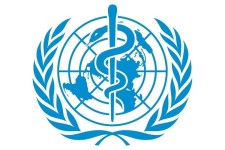WHO Collaborating Centres

WHO collaborating centres are institutions such as research institutes, parts of universities or academies, which are designated by the Director-General to carry out activities in support of the Organization's programmes. Currently there are over 800 WHO collaborating centres in over 80 Member States working with WHO on areas such as nursing, occupational health, communicable diseases, nutrition, mental health, chronic diseases and health technologies.
Background
The idea of using national institutions for international purposes dates back to the days of the League of Nations, when national laboratories were first designated as reference centres for the standardization of biological products. As soon as WHO was established, it appointed more reference centres, starting in 1947 with the World Influenza Centre in London for worldwide epidemiological surveillance.
As early as 1949, the Second World Health Assembly laid down the policy (which has been constantly followed since) that the Organization should not consider "the establishment, under its own auspices, of international research institutions" and the "research in the field of health is best advanced by assisting, coordinating and making use of the activities of existing institutions".
All WHO collaborating centres, irrespective of their type of work, have been designated under that policy, which has undoubtedly enhanced national participation in the Organization's activities.
By definition, a WHO collaborating centre is an institution designated by the Director-General of WHO to form part of an international collaborative network set up by WHO in support of its programme at the country, intercountry, regional, interregional and global levels. In line with the WHO policy and strategy of technical cooperation, a WHO collaborating centre also participates in the strengthening of country resources, in terms of information, services, research and training, in support of national health development.
Designation is made with the agreement of the head of the establishment to which the institution is attached or with that of the director of the institution, if it is independent, and after consultation with the national government. An institution is designated initially for a term of four years; the designation may be renewed for the same or a shorter period.
Designation is independent of financial support being given to the institution by WHO. Grants may be made to any institution that is able to perform a specific task connected with WHO's programme but this has no relevance to the eligibility or ineligibility of an institution for designation.
There are 17 ccoms in Switzerland including 7 in Geneva.
| Geneva University Hospitals (HUG) | WHO Collaborating Centre on infection prevention and control and antimicrobial resistance |
| Geneva University Hospitals (HUG) | WHO Collaborating Centre for Humanitarian Medicine and Disaster Management |
| Geneva University Hospitals (HUG) | WHO Collaborating Centre for Reference and Research in the Field of Education and Long-Term Follow-up Strategies for Chronic Diseases |
| Geneva University Hospitals (HUG) | WHO Collaborating Centre for e-Health |
| Geneva University Hospitals (HUG) | WHO Collaborating Centre for epidemic and pandemic diseases |
| University of Geneva | Centre collaborateur de l'OMS pour la Recherche et la Formation en Santé mentale |
| Foundation for Innovative and New Diagnostics | WHO Collaborating Centre for Laboratory Strengthening and Diagnostic Technology Evaluation |
| Centre hospitalier Universitaire Vaudois (CHUV) | WHO Collaborating Centre in adolescent and school health |
| Swiss Research Institute for Public Health and Addiction (ISGF) | WHO Collaborating Centre for Substance Abuse |
| The Swiss Tropical and Public Health Institute (SwissTPH) | WHO Collaborating Centre for Verbal Autopsy |
| The Swiss Tropical and Public Health Institute (SwissTPH) | WHO Collaborating Centre for Modelling, Monitoring and Training for Malaria Control and Elimination |
| The Swiss Tropical and Public Health Institute (SwissTPH) | WHO Collaborating Centre for Epidemiology and Control of Helminth Infections |
| University of Lausanne | Centre Collaborateur de l'OMS pour la Recherche et la Formation en Immunologie |
| University of Lucerne | Collaborating Center for Rehabilitation in Global Health Systems |
| University of Zurich | WHO Collaborating Centre for Travellers' Health |
| University of Zurich | WHO Collaborating Centre on Physical Activity for Health |
| University of Zürich | WHO Collaborating Centre for Bioethics |
- Partnership, alliance, network or initiative
- Public health, global health
- Medicine in general
- Training
- Research
- Policy brief or recommendation of good practices
- Local and international

